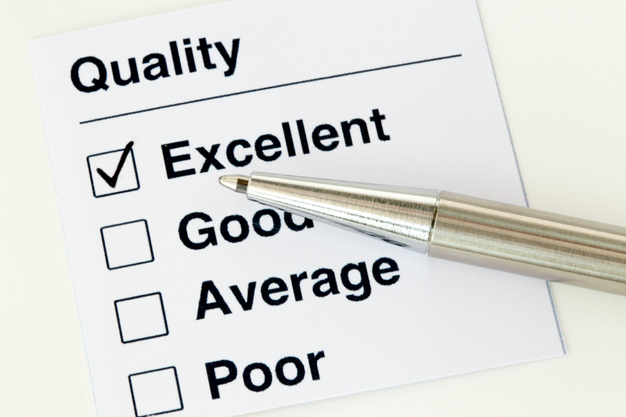
Teachers and administration use a variety of assessment methods. Teachers use quizzes, unit test, semester exams, individual and collaborative projects, student writings, and other methods of evaluation. Teacher evaluation is usually communicated with enough feedback to allow students and parents to benefit from the experience, not merely to receive a one-letter label. To get a broader picture of student learning, MBA uses the Stanford Achievement Test series in each grade, K-11, each year. Junior and Senior students are encouraged to take the ACT, which all graduating seniors from MBA have done during the past 10 years with only one exception. During the past four years, MBA students have consistently scored higher than public school students, both state and national who have taken the ACT. MBA’s average composite score for these years is 27, a score that indicates a strong academic preparation for our students going to college. Of the fifty-two graduates from MBA, thirty have gone on to Christian colleges.
The assessment process is derived from the school’s academic mission, to partner with parents to cultivate Christ-like young people through the integration of Biblical principles in the classroom, the example of Godly teachers, and rigorous academics. Many of our students go on to conservative Christian colleges after graduation. In addition to the traditional methods of testing and evaluation, MBA has many informal opportunities to perceive how students are responding to the spiritual values of MBA: class discussions, casual conversations, participation in sports activities and events, and students’ willingness to participate in our scheduled, but voluntary, visitation program for middle and high school students.
Teachers and administration review the Iowa Achievement Test results as one means of evaluating curriculum and planning to meet student needs. Iowa Achievement Test results are back before the teachers leave for the summer and are available resources for teachers as they look at the students entering their classes in the next school year. Then during the fall teacher in-service time, teachers are encouraged to use all available resources to determine the needs of their students. These resources include reports of teachers from previous years, IAT results, parental input, diagnostic tests from outside sources, and the teacher's own observation of the student in the classroom. Once the student’s needs are identified, different methods of instruction and evaluation may then be planned for the student. Teachers are also strongly urged not only to view each individual student as one to be reached and trained for Christ, but also to recognize that the student may be the key to reaching his family for Christ. As many of MBA's students do not come from our church family, and may not be in church-attending families, we see our role in their lives as evangelistic as well as educational. MBA has the unique opportunity of ministering to a large number of military families who may experience unusual challenges at times. MBA staff is actively involved in helping our students face these challenges from a Godly perspective.
When formal or informal assessments reveal student needs for individual students, teachers provide classroom interventions and confer with parents as necessary. Classroom assignments and tests may be adapted to fit the student’s ability, his understanding, and the speed with which he is able to accomplish assigned tasks. MBA also has one teacher assigned to act as a tutor for one hour, five days a week for students who need extra help after school. Teachers are encouraged to continue, through informal and formal study, their own personal development in learning various methods of instruction to meet the variety of needs present in each classroom. All MBA teachers are required to attend the regional Middle America Association of Christian Schools annual teachers’ conventions.
MBA communicates its assessment policies and practices to the school community through its handbooks, website, newsletters and policy manuals. Homework and grading policies are clearly stated in the school handbook, and reminders are frequently sent out in our monthly newsletter to parents. MBA’s overall ACT and SAT scores are listed on our website and are given in our handouts to prospective school parents. Please note that in previous years, we have utilized the Standard Achievement Test (SAT) for achievement evaluation. We are now switching to the Iowa Achievement Test which we believe will do a better job of measuring our students' achievement. You can read more about the Iowa Achievement Test here. MBA’s students have consistently performed above average expectations on these standardized tests. In the occasional event that a particular area of the IAT is noted to be lower than our desired score, special attention is given to that area the next year.
Students graduating from MBA have completed the number of courses in each category that are required by the state of Missouri. In addition, students are strongly encouraged to take the ACT in their junior and senior years. The test is then used to offer suggestions and guidance in their pursuit of a college education.
Teachers call or send a note to parents with academic, conduct, or character concerns. The school principal becomes involved with the student or parents if a problem is severe or is not resolved by the teacher’s communication. Before administering a more severe discipline, the principal will call the parents into the school to deal with their child first. MBA views its role in a child’s discipline as a help to the parents, not in place of the parents. Academic and conduct progress is also available to parents through our Sycamore website, through our report cards, and through personal contact. In the elementary grades, weekly packets containing students’ tests and quizzes are sent home to parents for their review and signature. In the middle and high school grades, tests are sent home to be signed by parents and returned by the students. Elementary school teachers use a behavior chart to record visually a student’s conduct throughout the day. This has been proven to be quite effective in helping children learn to discipline themselves. In the middle and high school grades, demerits are used to record misconduct. Demerit records are posted on our website for parents to view. As a positive incentive, students who accumulate fewer than a designated number of demerits, earn a reward trip at the end of each quarter. Academic and conduct progress reports are sent midway through each quarter and then at the end of each quarter.
The assessment process is derived from the school’s academic mission, to partner with parents to cultivate Christ-like young people through the integration of Biblical principles in the classroom, the example of Godly teachers, and rigorous academics. Many of our students go on to conservative Christian colleges after graduation. In addition to the traditional methods of testing and evaluation, MBA has many informal opportunities to perceive how students are responding to the spiritual values of MBA: class discussions, casual conversations, participation in sports activities and events, and students’ willingness to participate in our scheduled, but voluntary, visitation program for middle and high school students.
Teachers and administration review the Iowa Achievement Test results as one means of evaluating curriculum and planning to meet student needs. Iowa Achievement Test results are back before the teachers leave for the summer and are available resources for teachers as they look at the students entering their classes in the next school year. Then during the fall teacher in-service time, teachers are encouraged to use all available resources to determine the needs of their students. These resources include reports of teachers from previous years, IAT results, parental input, diagnostic tests from outside sources, and the teacher's own observation of the student in the classroom. Once the student’s needs are identified, different methods of instruction and evaluation may then be planned for the student. Teachers are also strongly urged not only to view each individual student as one to be reached and trained for Christ, but also to recognize that the student may be the key to reaching his family for Christ. As many of MBA's students do not come from our church family, and may not be in church-attending families, we see our role in their lives as evangelistic as well as educational. MBA has the unique opportunity of ministering to a large number of military families who may experience unusual challenges at times. MBA staff is actively involved in helping our students face these challenges from a Godly perspective.
When formal or informal assessments reveal student needs for individual students, teachers provide classroom interventions and confer with parents as necessary. Classroom assignments and tests may be adapted to fit the student’s ability, his understanding, and the speed with which he is able to accomplish assigned tasks. MBA also has one teacher assigned to act as a tutor for one hour, five days a week for students who need extra help after school. Teachers are encouraged to continue, through informal and formal study, their own personal development in learning various methods of instruction to meet the variety of needs present in each classroom. All MBA teachers are required to attend the regional Middle America Association of Christian Schools annual teachers’ conventions.
MBA communicates its assessment policies and practices to the school community through its handbooks, website, newsletters and policy manuals. Homework and grading policies are clearly stated in the school handbook, and reminders are frequently sent out in our monthly newsletter to parents. MBA’s overall ACT and SAT scores are listed on our website and are given in our handouts to prospective school parents. Please note that in previous years, we have utilized the Standard Achievement Test (SAT) for achievement evaluation. We are now switching to the Iowa Achievement Test which we believe will do a better job of measuring our students' achievement. You can read more about the Iowa Achievement Test here. MBA’s students have consistently performed above average expectations on these standardized tests. In the occasional event that a particular area of the IAT is noted to be lower than our desired score, special attention is given to that area the next year.
Students graduating from MBA have completed the number of courses in each category that are required by the state of Missouri. In addition, students are strongly encouraged to take the ACT in their junior and senior years. The test is then used to offer suggestions and guidance in their pursuit of a college education.
Teachers call or send a note to parents with academic, conduct, or character concerns. The school principal becomes involved with the student or parents if a problem is severe or is not resolved by the teacher’s communication. Before administering a more severe discipline, the principal will call the parents into the school to deal with their child first. MBA views its role in a child’s discipline as a help to the parents, not in place of the parents. Academic and conduct progress is also available to parents through our Sycamore website, through our report cards, and through personal contact. In the elementary grades, weekly packets containing students’ tests and quizzes are sent home to parents for their review and signature. In the middle and high school grades, tests are sent home to be signed by parents and returned by the students. Elementary school teachers use a behavior chart to record visually a student’s conduct throughout the day. This has been proven to be quite effective in helping children learn to discipline themselves. In the middle and high school grades, demerits are used to record misconduct. Demerit records are posted on our website for parents to view. As a positive incentive, students who accumulate fewer than a designated number of demerits, earn a reward trip at the end of each quarter. Academic and conduct progress reports are sent midway through each quarter and then at the end of each quarter.






